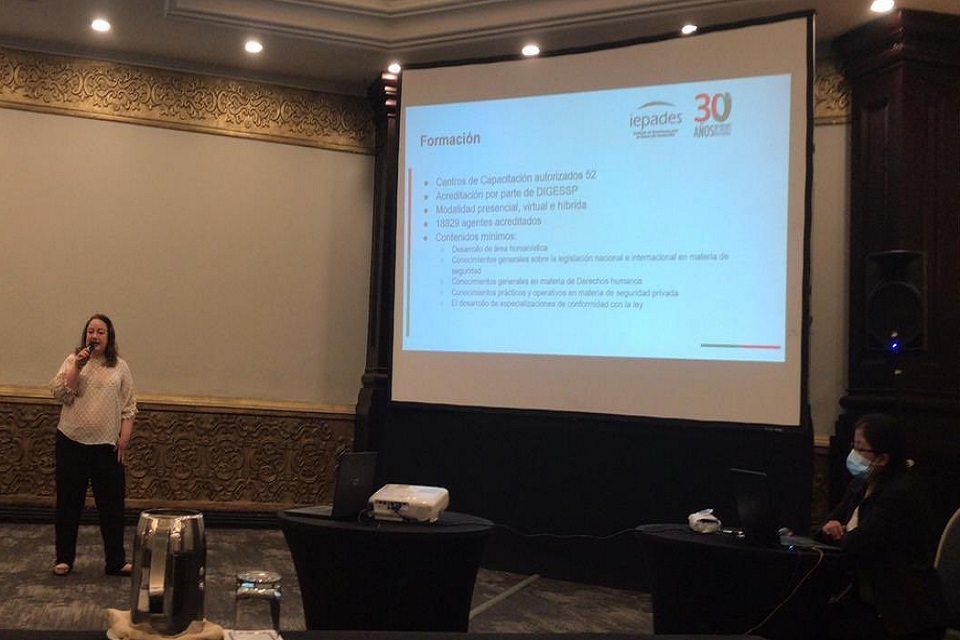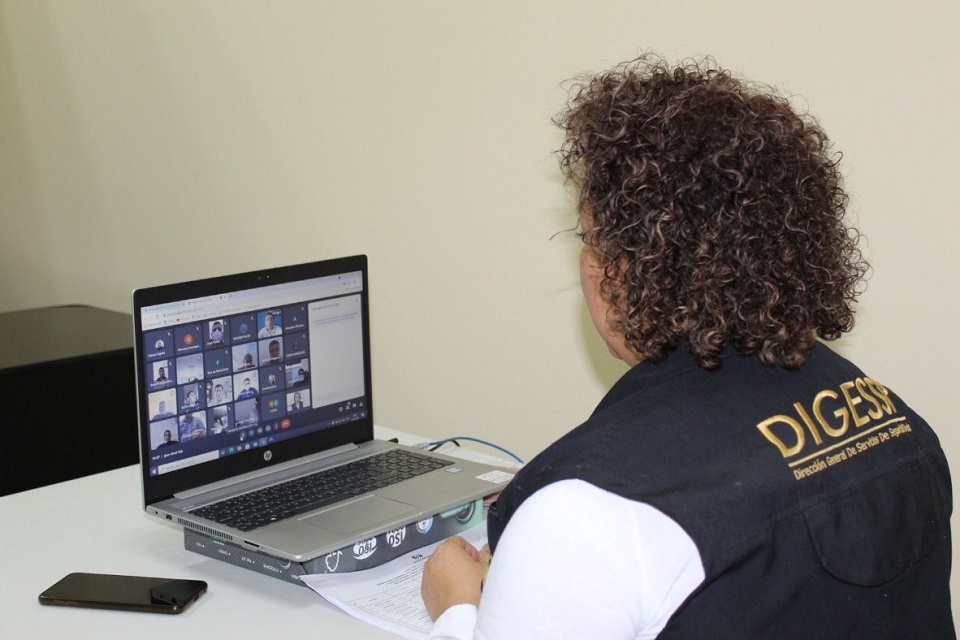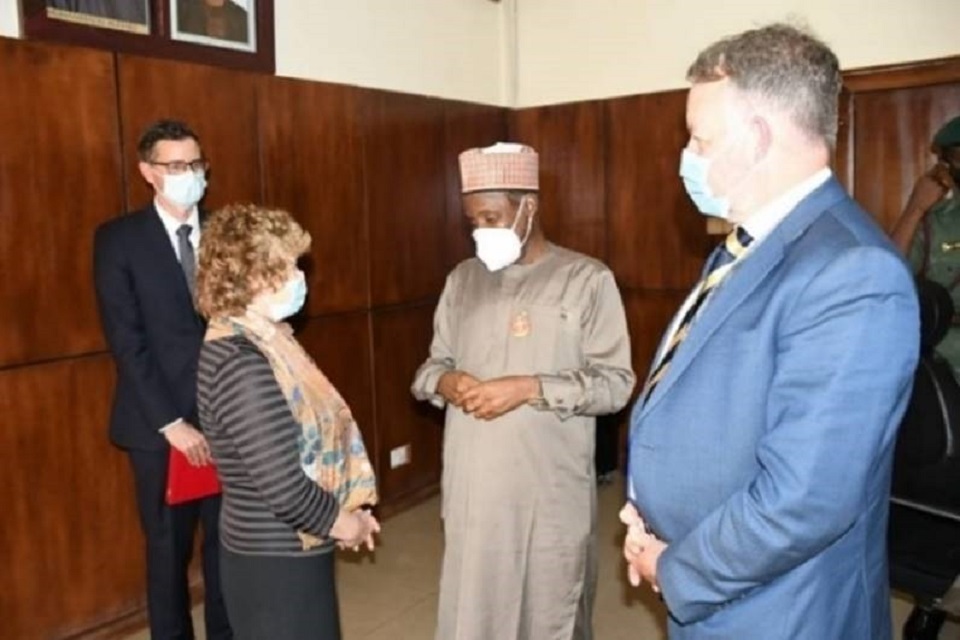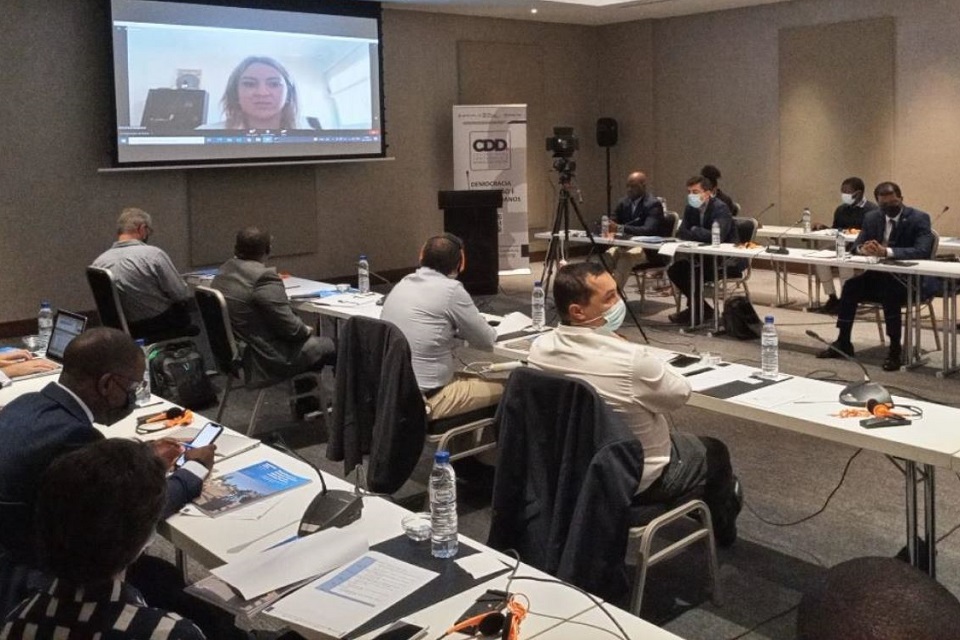Voluntary Principles on Security and Human Rights for businesses operating in complex or fragile environments: 2021 UK annual report
Published 25 February 2022
This report details the work, which the United Kingdom undertook in 2021 to implement the Voluntary Principles on Security and Human Rights (Voluntary Principles). As a member of the Voluntary Principles Initiative (VPI), the UK is required to produce a full report every three years and an update report every year on its work to implement the Voluntary Principles. The last full UK annual report, covering 2018, was published on 22 March 2019.
1. Commitment to the Voluntary Principles on Security and Human Rights
The UK Government remains committed to supporting the growth, sustainability and impact of the VPI. The VPI provides a valuable open and frank forum where a range of stakeholders, including companies, NGOs and governments, can share best practice, exchange ideas and information and discuss challenging issues. Through this collaboration, the Voluntary Principles can help companies to drive up standards in managing their security operations as well as contributing to UK efforts to build stability overseas, reduce the sources of conflict and promote our core values and respect for human rights. We are proud of our role in developing the Voluntary Principles in 2000. They make a valuable contribution to upholding human rights and preventing conflict where extractive companies operate in difficult, fragile and complex environments.
The UK considers the Voluntary Principles a key tool in helping implement the UN Guiding Principles on Business and Human Rights (UNGP) alongside the UK National Action Plan. The UK National Action Plan sets out our commitment to:
Continue to work closely with Voluntary Principles on Security and Human Rights Initiative (VPI) member governments, extractive companies and civil society organisations, to promote greater understanding of the Voluntary Principles and strengthen the implementation, effectiveness and membership…we will continue to work on better corporate implementation of the Voluntary Principles on the ground. This includes maintaining dialogues with ‘host’ governments. [footnote 1]
2. Domestic Policies, Laws, and Regulations
The UK supports a mix of existing legal and regulatory measures alongside voluntary initiatives, to promote responsible practice in the global extractives and domestic and international private security sector, with the aim that this contributes to reducing and preventing conflict and protecting human rights. The UK has specific laws protecting human rights and policies governing business activities, outlined below. These are set out in legislation or sometimes protected by common law rules, which, together, ensure certain rights and liberties. Like all States, we need to continually re-assess whether the current mix is right, what gaps there might be and what improvements we could make.
The UK is subject to international human rights obligations under customary international law and as a result of the international legal instruments, we have signed and ratified. Human rights obligations generally apply only within a State’s territory and/or jurisdiction. Accordingly, there is no general requirement for States to regulate the extraterritorial activities of business enterprises domiciled in their jurisdiction, although there are limited exceptions to this, for instance under treaty regimes. The UK may also choose as a matter of policy in certain instances to regulate the overseas conduct of British businesses.
The UK has ratified a series of international treaties and agreements—such as the International Labour Organisation’s eight core conventions, the International Covenant on Civil and Political Rights, the International Covenant on Economic, Social and Cultural Rights and the European Convention on Human Rights, which enshrine human rights and fundamental freedoms and have been given effect through the law. Currently the Human Rights Act 1998 ensures that individuals in the UK have a remedy for the breach of rights, protected by the European Convention on Human Rights (ECHR).
The UK is committed to promoting the responsible corporate behaviour of UK companies overseas, supported through the Organisation for Economic Co-operation and Development (OECD) Guidelines for Multinational Enterprises.[footnote 2] The Guidelines provide recommendations on responsible business conduct to respect the human rights of those affected by Multinational Enterprise’s operations. The FCDO works closely with the UK National Contact Point, responsible for promoting the guidelines and for operating the complaints mechanism relating to breaches of the guidance.[footnote 3]
3. Promotion and Implementation of the Voluntary Principles
In March 2021, the UK re-joined the VPI Steering Committee, having previously rotated off the Committee in accordance with VPI Governance rules. The UK participated in all Steering Committee and Government Pillar meetings to support the ongoing strategic development and delivery of the Voluntary Principles. This focused on the development of the Spending Framework for 2021-2023 to help guide future budgets and planning; the creation of the VPI Strategic Review Commission, to oversee the evaluation of the VPI and consider the Initiative’s strategic objectives for future years, and work to establish new jurisdictions for In-Country Working Groups (ICWGs) to help tackle human rights and security related issues. The informal UK VPI Working Group, chaired by the FCDO met twice in 2021.

Guatemala: DCAF and IEPADES- Teaching Institute for Sustainable Development’s presentation to the Voluntary Principles WG
In accordance with the VPI Government Pillar Verification Framework, and in support of increasing transparency within the VPI, the UK VPI Annual and Update Reports are published on Gov.uk and the VPI’s website. The UK encourages all participants in the VPI to make Annual and Update Reports publicly available.
4. Country focus
While the coronavirus pandemic meant that some UK engagement and UK-funded projects were necessarily delayed or amended in some form, UK diplomatic missions have continued to support VP implementation in country.
In Guatemala, the British Embassy co-chaired the ICWG during the first quarter of 2021 and through the ICWG continued its engagement with the government by meeting with the newly created Presidential Commission for Peace and Human Rights and the new head of the General Directorate of Private Security Services (DIGESSP). In March, the WG and DIGESSP attended a month-long training event on Business and Human Rights with a focus on the Voluntary Principles. The WG supported DIGESSP by delivering a training session to its personnel to help build DIGESSP’s capability on initiatives, standards and international best practices in private security regulation for Private Security Companies (PSCs).

Guatemala: Virtual training session on strengthening private security
In Mozambique, the British High Commission funded projects to generate awareness and support for the Voluntary Principles. One project, a series of workshops, national and international events secured high profile engagement and raised awareness on the Voluntary Principles. These events brought stakeholders together to share best practice and to agree on practical next steps. Another project, delivered through Chatham House, produced a briefing note entitled ‘Mozambique and the Voluntary Principles’[footnote 4] which demonstrated the relevance of the Voluntary Principles for Mozambique and set out the benefits of VPI membership. The briefing note was distributed widely throughout the country and translated into English, Portuguese[footnote 5] and Swahili[footnote 6] .

Nigeria: British High Commissioner, Catriona Laing and her Canadian and Australian counterparts speak with Minister of Defence, H.E. Major-General Bashir Magashi shortly after he announced his support for Nigeria’s proposed membership of the VPI
In Myanmar, the British Embassy worked with the ICWG, whose Secretariat is provided by the Myanmar Centre for Responsible Business (MCRB)[footnote 7] , a joint initiative 50% funded by the UK and 50% by several VP member governments. The Group met once on 18 January 2021 to discuss ae baseline study on the Private Security sector, which aims to assess the landscape for PSCs and identify how to incorporate human rights protection into future regulation in Myanmar. The military coup on 1 February triggered an economic crisis, and severely impacted delivery of the Embassy’s work. The coup led to a number of companies, Embassy and NGO Working Group members scaling back their in-country presence and activity. This meant that no further ICWG meetings were held in 2021.
In Nigeria, the British High Commission through the ICWG continued to work with likeminded partners, to progress Nigeria’s membership of the VPI. The British High Commission alongside VPI Government Pillar members, secured the support of Government Ministers to proceed with Nigeria’s VPI membership application, which was endorsed at an inter-ministerial meeting, chaired by the Foreign Minister in January 2022.
In Peru, the British Embassy worked through the ICWG in Lima to promote the Voluntary Principles and support the Government of Peru’s efforts to address public policy risks and potential human rights violations in business activities more effectively. The ICWG promoted the non-use of force in social conflicts by private actors and produced a report on human rights training for private security personnel in Peru, with recommendations on improvement. Work also continued on the National Action Plan on Business and Human Rights, which was completed and approved in June. The ICWG worked with the Government of Peru and stakeholders to discuss progress and identify risks surrounding the process of implementing the NAP. UK funding supported the development of an online virtual platform for government and business to use in order to monitor progress on implementing the NAP. It will also serve as a compliance mechanism for the Peruvian Government’s commitment to implement international standards in the country including the UN Guiding Principles on Business and Human Rights (UNGP).
The British Embassy continued its support for indigenous people’s rights to help manage conflicts with the extractive industry. In October, the British Embassy received visits from community representatives of Santa Clara de Uchunya and Flor de Ucayali and acted as mediators to raise and discuss issues of concern with the Minister of Justice and Human Rights, and the Vice Minister of Human Rights and Access to Justice.
5. Project Funding
In 2021, the UK contributed £142,789 in funding to the Security and Human Rights Implementation Mechanism (SHRIM). The SHRIM is a multi-donor fund established in 2016 by the UK and the Geneva Centre for Security Sector Governance (DCAF) to support targeted implementation of security and human rights good practice on the ground in a cost effective way in conflict affected and complex environments. The fund combines multiple donor engagement with DCAF’s experience in developing international multi-actor mechanisms to support effective security, development and human rights projects in fragile contexts. Through direct funding and its seat on the Executive Committee, the UK is able to ensure funding is used for a variety of projects that have a real impact in the implementation of the Voluntary Principles. Funding in 2021, brings the total UK contribution to the SHRIM to £889,546 since its creation. Previous UK Annual Reports on the Voluntary Principles contain details of projects funded in previous years. UK funding supported the following projects in 2021:
a. In Colombia, DCAF collaborated with local partner Alliance for Responsible Mining (ARM) to improve the capacity of Artisanal and Small-Scale Miners (ASM) to carry out security and human rights risk identification and mitigation where they coexist in the vicinity of Large-Scale Miners (LSM). A series of workshops on security risk management and on the Voluntary Principles were held to improve knowledge and create collaborative working opportunities for ASM and LSM in Antioquia. This led to the publication of the ‘Guidance on Security and Human Rights in Artisanal and Small-Scale Mining’[footnote 8] and an online video ‘How can small-scale miners address security and human rights risks?’[footnote 9] to support ASM to carry out human rights due diligence and mitigate risks regarding the security providers around their mining sites. Building on this, ARM contributed to a national consultative process to raise awareness of the Voluntary Principles to encourage their incorporation into industry standards. The project brought together local partners from Colombia and DRC to identify lessons learned in regional multi-stakeholder VP implementation. This strengthened CSO capabilities on how to monitor and report on social incidents related to ASM and LSM and provided practical guidance for other ASM miners. It also brought together DCAF, the ICWG, the Regional Centre for Responsible Companies and Entrepreneurship (CREER) and the Ministry of Defence to develop a guide for multi-stakeholder security and human rights risk assessment as part of enhanced human rights due diligence in Colombia’s conflict-affected mining regions. The guide will be published in early 2022.
b. In the Democratic Republic of Congo, DCAF, working with the International Code of Conduct Association and the Observatory for the Study and Development of Social and Environmental Responsibility, hosted two capacity building workshops for the Director General of the Civil Protection and government representatives and CSOs from Kinshasa, North Kivu, Maniema, Kasaï Oriental and Haut Katanga, to collaborate on implementing a monitoring tool based on the International Code of Conduct for Private Security Service Providers (ICoC). . CSO-led outreach missions to government officials from the capital and nine regions created momentum to apply the monitoring tool to improve private security governance. This strengthened the relationship between the government and CSOs, which led to the Civil Protection Directorate requesting CSO support on training for PSCs and gathering data on PSCs in the country Funding further equipped 75 CSOs with the knowledge of good practice standards and confidence to field test the monitoring tool[footnote 10] to successfully monitor and document the conduct of PSCs in Maniema, South Kivu and in Haut Katanga. The monitoring tool was dispatched to eleven provinces, building the capabilities of a further 60 CSOs on monitoring of PSCs conduct. Work will continue in early 2022 to strengthen the Directorate of Civil Protection’s monitoring and oversight capacity to improve compliance of the private security industry with human rights.
c. In Guatemala, Honduras and El Salvador, DCAF, partnered with the Institute of Teaching for Sustainable Development, developed three national baseline studies[footnote 11] on the challenges and good practices of the security sector to support government regulators in their oversight and enforcement of the sector in the three countries. In May, the Guatemalan study recommendations were presented to the Guatemalan private security regulator the General Directorate of Private Security Services (DIGESSP), which generated political support for DIGESSP to reconsider its training approach for its personnel. The project strengthened the capacity of CSOs and regulatory authorities to contribute more effectively to the development of private security regulation in line with international norms and good practices. The Guatemalan Voluntary Principles WG plans further outreach to support implementation of the study’s recommendations.
d. In Kenya, capacity building workshops on the Montreux Document, the ICoC and the Voluntary Principles, upskilled 45 CSOs and media representatives from Kisumu, Mombasa and Nairobi to report on security and human rights issues. The workshops increased participants’ confidence and understanding of international best practices, which generated TV reports[footnote 12] and press articles[footnote 13] to improve local audience’s knowledge around private security governance. Social media further amplified the reach to communities and private security personnel in regional areas.
Funding supported local partner, Usalama Reforms Forum to work with other CSOs to deliver a media campaign on business and human rights targeted at local communities, private security agents and community group leaders in Kisumu, Mombasa and Nairobi which launched conversations on private security governance across the country reaching an estimated audience of over 600,000 people. This strengthened CSO and media capacity to promote international best practices standards and in the monitoring and reporting on business and security activities.

Mozambique: Deputy High Commissioner Alexandra Sheppard speaking at the launch of the National Voluntary Principles Working Group
e. In Mozambique, the British High Commission and DCAF brought together international stakeholders to drive joint donor action through the multi-donor funding mechanism, the Security and Human Rights Implementation Mechanism. This led to support for the creation of a Voluntary Principles implementation process in Mozambique, with a focus on Cabo Delgado province, and for the creation of a National Voluntary Principles Working Group in November. The National Voluntary Principles Working Group will build on governmental and international community support to develop locally owned and sustainable approaches to address security and human rights risks in the country and promote sustainable implementation of the Voluntary Principles.
f. In Nigeria, The Voluntary Principles smartphone application[footnote 14] and human rights pocket handbooks were distributed to the Nigeria Security and Civil Defence Corps (NSCDC), Nigerian Police and civil society at a workshop to improve their understanding of the Voluntary Principles in addressing community based security and human rights concerns. The participation of the Commandant General of the NSCDC in the workshop helped increase the engagement of the NSCDC with civil society. This led to the Commandant to consider commissioning a ‘train the trainer’ programme that will enable NSCDC to build its capacity on the Voluntary Principles.
UK funding also supported the promotion outreach meetings for CSOs, media representatives and communities’ members in Akwa Ibom, Abia and Imo States to promote podcasts and outreach materials on the Voluntary Principles. This helped communities to better understand security and human rights good practices and how they can use the Voluntary Principles as a tool in their dialogues with companies and security providers[footnote 15]. The workshop created a platform for constructive community dialogue on issues of concern that enabled participation from youth and women leaders and traditional rulers.
6. Public and Private Security
The UK is a founding signatory to the Montreux Document, which reaffirms the existing obligations of states under international law relating to the activity of private military and security companies during armed conflict. The UK has continued working with governments, industry and civil society to implement international initiatives to promote responsible practice in the private security sector. A wide range of organisations—business, government and NGOs—need to employ responsible security providers in order to carry out work of value to local communities in complex security environments. Increasingly, they want to do so in the knowledge that the companies they employ will act responsibly in relation to local communities, human rights and the drivers of conflict.
The UK played a leading role in the drafting of the International Code of Conduct for Private Security Service Providers (ICOC) in 2010, and the launch of its oversight mechanism to monitor compliance with the Code, the International Code of Conduct Association (ICoCA) in 2013. Throughout 2021, the UK continued to support ICoCA through our seat on the Governing Board, and membership of ICoCA. The UK supported technical amendments to the International Code of Conduct, made in December, to help bring the Code of Conduct into line with current practices.
The UK continued to engage with industry partners through the Security in Complex Environments Group (SCEG) a special interest group for Private and Maritime Security Companies.
7. Project Funding
UK funding in 2021 enabled ICoCA to support human rights due diligence in the private security supply chain in the following ways:
a. Development and launch of the Prevention of Sexual Exploitation and Abuse (PSEA) online training and portal, which helps PSCs effectively mitigate the risk of sexual exploitation and abuse and to address incidents and allegations. Since its launch in March, a number of member companies have made this training mandatory for their personnel. As a result, over 1,000 individuals across 63 countries have undertaken the course, building the capacity of PSCs to minimise occurrences of PSEA within their in-country operations. The translation of the online training into Arabic, Chinese, French, and Spanish, in early 2022 will widen access to this training.
b. The production of a Human Rights Impact Assessment Guidance (HRIA)[footnote 16] to support PSCs understanding of their human rights due diligence responsibilities and the action needed to prevent and mitigate infringements. The translation of the Guidance into Arabic[footnote 17], Chinese[footnote 18], French[footnote 19], and Spanish[footnote 20] in early 2022 will similarly widen access to the HRIA by companies with operations across the Middle East, Africa and Latin America.
c. The rollout of a Human Rights Due Diligence Social Media Campaign, aimed at the client base of private security companies to increase their understanding of human rights due diligence responsibilities and support responsible procurement. The campaign generated interest with posts on social media platforms viewed over 120,000 times, and brought together 330 participants from 64 countries to a webinar in March “Reducing Human Rights Risk in Your Private Security Supply Chain”[footnote 21]. The campaign generated interest from several organisations seeking further details on human rights due diligence, some for the first time.
8. Lessons Learned
Companies operating in complex environments need to manage their operations effectively to minimise the risks that exist throughout their supply chain.
Frameworks such as the UN Guiding Principles on Business and Human Rights and the OECD Guiding Principles for Multinational Enterprises require businesses to ensure they identify these risks and improve their practices in such contexts. There is a range multilateral stakeholder initiatives, which bring together Governments, businesses and NGOs to tackle the drivers of conflict in the extractives sector and responsible supply chains.
Now is the right time to explore how best to strengthen these links across the initiatives and organisations operating in this space. In the context of the global pandemic, given the limitations on travel, and the need to refocus resources generally over the last year on the COVID-19 response—partnering with others and drawing on networks can help to maintain momentum. Many project implementing partners are open to partnering with others. Donors can play a role in helping to support.
The UK supported collaboration between the VPI and other Multi Stakeholder Initiatives (MSIs). We moderated the OECD webinar in April on “Situating and responding to security contracting risks in and around mine sites”, which brought together panel members from the OECD and VPI and representatives from NGO and corporate sectors.
This report has highlighted the importance and value in working collaboratively with partners. Our effectiveness lies in leveraging the efforts of others as demonstrated by our support to in-country implementation. We encourage more collaborative opportunities as many of the challenges the sector faces can only be met by collective action. This is one of the key areas identified in the UK’s recent Integrated Review of Security, Defence, Development and Foreign Policy[footnote 22], to defend openness, democracy and human rights, which our work supports.
-
UK National Action Plan on Implementing the UN Guiding Principles on Business and Human Rights ↩
-
https://www.gov.uk/government/groups/uk-national-contact-point-for-the-organisation-for-economic-co-operation-and-development-guidelines#oecd-guidelines-for-multinational-enterprises ↩
-
https://www.chathamhouse.org/2021/11/mozambique-and-voluntary-principles-security-and-human-rights ↩
-
https://www.chathamhouse.org/sites/default/files/2021-11/2021-11-24-Mozambique-and-the-voluntary-principles-on-human-rights-vandome-vines-portuguese.pdf ↩
-
A copy of the VPs translated into Swahili appears as Annex 5 on https://www.chathamhouse.org/sites/default/files/2021-11/2021-11-24-Mozambique-and-the-voluntary-principles-on-human-rights-vandome-vines-portuguese.pdf ↩
-
https://www.myanmar-responsiblebusiness.org/dialogues/voluntary-principles ↩
-
https://www.responsiblemines.org/wp-content/uploads/2021/07/Herramienta_Guia-seguridad-y-ddhh-MAPE_VF_compressed.pdf ↩
-
https://businessandsecurity.dcaf.ch/sites/default/files/ressources/DCAF_ICoCA_FRENCH_RDC_online.pdf ↩
-
https://businessandsecurity.dcaf.ch/private-security-northern-triangle ↩
-
https://twitter.com/citizentvkenya/status/1366705145569030145?s=08 ↩
-
https://guardian.ng/features/law/prawa-geneva-centre-train-security-officers-on-voluntary-principles/, https://www.civicspace.africa/who-guards-the-guards/ ↩
-
https://play.google.com/store/apps/details?id=com.coderscage.voluntaryprinciples&hl=en_US&gl=US ↩
-
https://icoca.ch/wp-content/uploads/2021/07/ICoCA_HRIA_Guidance_A4_EN_WEB.pdf ↩
-
https://icoca.ch/wp-content/uploads/2021/07/ICoCA_HRIA_Guidance_A4_AR_WEB.pdf ↩
-
https://icoca.ch/wp-content/uploads/2021/07/ICoCA_HRIA_Guidance_A4_ZH_WEB.pdf ↩
-
https://icoca.ch/wp-content/uploads/2021/07/ICoCA_HRIA_Guidance_A4_FR_WEB.pdf ↩
-
https://icoca.ch/wp-content/uploads/2021/07/ICoCA_HRIA_Guidance_A4_ES_WEB.pdf ↩
-
https://icoca.ch/2021/03/09/reducing-human-rights-risk-in-your-private-security-supply-chain/ ↩
-
https://assets.publishing.service.gov.uk/government/uploads/system/uploads/attachment_data/file/975077/Global_Britain_in_a_Competitive_Age the_Integrated_Review_of_Security__Defence__Development_and_Foreign_Policy.pdf ↩
